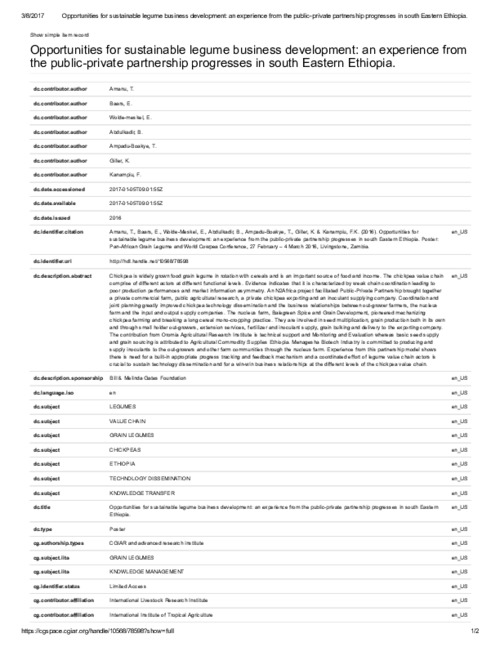Opportunities for sustainable legume business development: an experience from the public-private partnership progresses in south Eastern Ethiopia
Abstract
Chickpea is widely grown food grain legume in rotation with cereals and is an important source of food and income. The chickpea value chain comprise of different actors at different functional levels. Evidence indicates that it is characterized by weak chain coordination leading to poor production performances and market information asymmetry. An N2Africa project facilitated Public-Private Partnership brought together a private commercial farm, public agricultural research, a private chickpea exporting and an inoculant supplying company. Coordination and joint planning greatly improved chickpea technology dissemination and the business relationships between out-grower farmers, the nucleus farm and the input and output supply companies. The nucleus farm, Balegreen Spice and Grain Development, pioneered mechanizing chickpea farming and breaking a long cereal mono-cropping practice. They are involved in seed multiplication, grain production both in its own and through small holder out-growers, extension services, fertilizer and inoculant supply, grain bulking and delivery to the exporting company. The contribution from Oromia Agricultural Research Institute is technical support and Monitoring and Evaluation whereas basic seed supply and grain sourcing is attributed to Agricultural Commodity Supplies Ethiopia. Menagesha Biotech Industry is committed to producing and supply inoculants to the out-growers and other farm communities through the nucleus farm. Experience from this partnership model shows there is need for a built-in appropriate progress tracking and feedback
 mechanism and a coordinated effort of legume value chain actors is crucial to sustain technology dissemination and for a win-win business relationships at the different levels of the chickpea value chain

